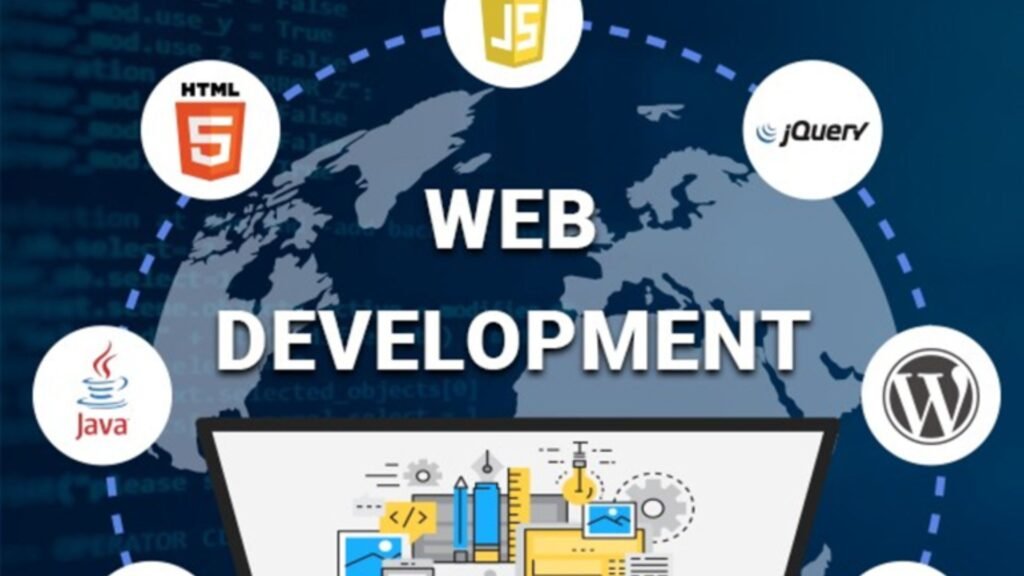As web development continues to evolve, staying up-to-date with the latest tools is crucial for building modern, efficient, and scalable websites. In 2024, several essential web development tools stand out for their ability to streamline workflows, enhance productivity, and support cutting-edge technologies. Here’s a guide to the must-have web development tools for this year.

Code Editors
Visual Studio Code
Visual Studio Code (VS Code) remains a top choice for developers in 2024. Its lightweight yet powerful features make it a favorite among professionals. With a wide range of extensions, integrated Git support, and a customizable interface, VS Code enhances coding efficiency and flexibility. Its IntelliSense feature provides smart code completions, making writing code faster and more accurate.
Sublime Text
Sublime Text continues to be a popular code editor for its speed and simplicity. Known for its minimalistic design, Sublime Text offers powerful features like multiple selections, a command palette, and a distraction-free mode. It’s ideal for developers who prefer a streamlined, high-performance environment for coding.
Version Control
GitHub
GitHub remains a key tool for version control and collaboration. Its robust platform supports code repositories, issue tracking, and project management. With GitHub Actions, you can automate your workflows, build and test code, and deploy applications seamlessly. GitHub’s integration with various tools and services makes it indispensable for modern web development.
GitLab
GitLab is another powerful version control platform offering a comprehensive suite of DevOps tools. It provides source code management, continuous integration and deployment (CI/CD), and issue tracking all in one place. GitLab’s features facilitate efficient collaboration and streamlined development processes.
Front-End Frameworks
React
React continues to be a leading front-end library for building user interfaces. Its component-based architecture, virtual DOM, and extensive ecosystem make it a top choice for creating dynamic and interactive web applications. React’s robust community support and frequent updates keep it at the forefront of web development.
Vue.js
Vue.js remains a popular choice for developers seeking a progressive framework for building user interfaces. Its ease of integration, flexible architecture, and clear documentation make Vue.js a versatile option for both small and large-scale projects. Vue’s reactive data binding and component-based structure enhance development efficiency.
CSS Frameworks
Tailwind CSS
Tailwind CSS is gaining traction for its utility-first approach to styling. Unlike traditional CSS frameworks, Tailwind allows developers to apply styles directly within HTML using utility classes. This approach promotes rapid development and custom design without the need for predefined components.
Bootstrap
Bootstrap continues to be a widely used CSS framework for responsive design. Its pre-designed components and grid system simplify the process of creating visually appealing and mobile-friendly websites. Bootstrap’s comprehensive documentation and large community support make it a reliable choice for developers.
Build Tools
Webpack
Webpack remains a powerful build tool for bundling JavaScript modules and assets. It enables developers to optimize their applications by managing dependencies, code splitting, and asset processing. Webpack’s plugin system and configuration flexibility make it essential for modern web development workflows.
Vite
Vite is an emerging build tool that focuses on speed and performance. It offers a fast development server and efficient build process, thanks to its use of native ES modules. Vite’s simplicity and fast hot module replacement (HMR) make it a compelling choice for developers seeking a modern alternative to traditional build tools.
Development Environments
Docker
Docker continues to be a crucial tool for creating and managing development environments. By containerizing applications and their dependencies, Docker ensures consistency across different environments, from development to production. Its portability and scalability make it ideal for managing complex web development workflows.
Vagrant
Vagrant remains a popular choice for creating and managing virtualized development environments. It allows developers to configure and provision virtual machines using simple configuration files. Vagrant’s compatibility with various platforms and integration with provisioning tools streamline the development environment setup.
Testing Tools
Jest
Jest is a widely-used testing framework for JavaScript applications. It provides a comprehensive testing suite, including unit testing, integration testing, and snapshot testing. Jest’s simplicity and built-in mocking capabilities make it a powerful tool for ensuring code quality and reliability.
Cypress
Cypress is a modern end-to-end testing framework known for its ease of use and robust feature set. It allows developers to write and run tests directly in the browser, providing real-time feedback and debugging capabilities. Cypress’s intuitive API and fast execution make it a valuable tool for testing web applications.
Performance Monitoring
Google Lighthouse
Google Lighthouse is an essential tool for auditing website performance, accessibility, and SEO. It provides actionable insights and recommendations to improve page speed, user experience, and search engine rankings. Lighthouse’s integration with Chrome DevTools makes it easy to monitor and optimize website performance.
New Relic
New Relic offers comprehensive performance monitoring and application management. It provides real-time insights into application performance, user interactions, and infrastructure metrics. New Relic’s detailed analytics and monitoring capabilities help developers identify and address performance issues effectively.
Conclusion
In 2024, leveraging the right web development tools is crucial for building efficient, high-quality web applications. Code editors like Visual Studio Code and Sublime Text, version control platforms such as GitHub and GitLab, and front-end frameworks like React and Vue.js are essential for modern development workflows. CSS frameworks, build tools, development environments, testing tools, and performance monitoring solutions further enhance the development process. By incorporating these tools into your workflow, you can stay ahead of the curve and deliver exceptional web experiences.



